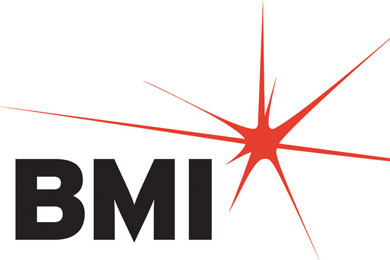
 The U.S. Department of Justice’s Antitrust Division announced this week that it will review the 73-year-old legal system governing what songwriters and publishers charge broadcasters, digital music services and other licensees for playing their compositions, according to the Wall Street Journal.
The U.S. Department of Justice’s Antitrust Division announced this week that it will review the 73-year-old legal system governing what songwriters and publishers charge broadcasters, digital music services and other licensees for playing their compositions, according to the Wall Street Journal.
After two antitrust settlements were signed dating back to the 1940s, the country’s two largest performing rights organizations—Broadcast Music Incorporated (BMI) and American Society of Composers, Authors and Publishers (ASCAP)—were mandated by the federal government to license their members’ compositions to any parties willing to pay the rates set by federal judges through the U.S. District Court for the Southern District of New York.
The Justice Department’s review will include a 60-day period for public comments about the consent decrees. The department could then recommend changes to regulation, which will be reviewed by the U.S. District Court.
ASCAP’s consent decree was last amended in 2001, while BMI’s was last amended in 1994.
 According to sources, BMI and ASCAP will request the government streamline the rate-setting process, in order to limit it to a 90-day arbitration period, instead of full-blown trials. They will also push for the ability to license members’ catalogs to select music users.
According to sources, BMI and ASCAP will request the government streamline the rate-setting process, in order to limit it to a 90-day arbitration period, instead of full-blown trials. They will also push for the ability to license members’ catalogs to select music users.
Some publishers are considering withdrawing their catalogs from these PROs if not allowed to opt out of ASCAP’s and BMI’s licensing agreements in case-by-case circumstances. If publishers do withdraw from these PROs, they would be responsible for collecting their own performance royalties from radio stations, streaming services, television broadcasts and other outlets, or they can outsource the job to a third party.
“ASCAP remains committed to working with the Department of Justice and all industry stakeholders to modernize the music licensing system so that it better serves songwriters, the businesses who depend on our music and the people who listen to it – not just today, but for generations to come.” ASCAP President and Chairman Paul Williams stated. “Updating music licensing regulations to reflect the realities of today’s music landscape will preserve the benefits of collective licensing to businesses that license music, give consumers greater access to the music they love and allow the more than 500,000 songwriters, composers and music publishers we represent to be compensated for the true value their music brings to the marketplace.”
“In the current digital environment, it is crucial that ASCAP and BMI’s outdated consent decrees are amended to reflect the realities of the current marketplace and emerging business models. We welcome the Department of Justice’s review and we are optimistic the system will be reformed to allow our writers and composers to receive fair market value for their music,” said Martin Bandier, Sony/ATV Music Publishing Chairman and CEO.
The review comes when lawmakers are considering a larger revision of copyright law, including the rules that regulate what digital music services pay record labels, and performers to transmit recordings.

Category: Featured
About the Author
Jessica Nicholson serves as the Managing Editor for MusicRow magazine. Her previous music journalism experience includes work with Country Weekly magazine and Contemporary Christian Music (CCM) magazine. She holds a BBA degree in Music Business and Marketing from Belmont University. She welcomes your feedback at jnicholson@musicrow.com.View Author Profile


